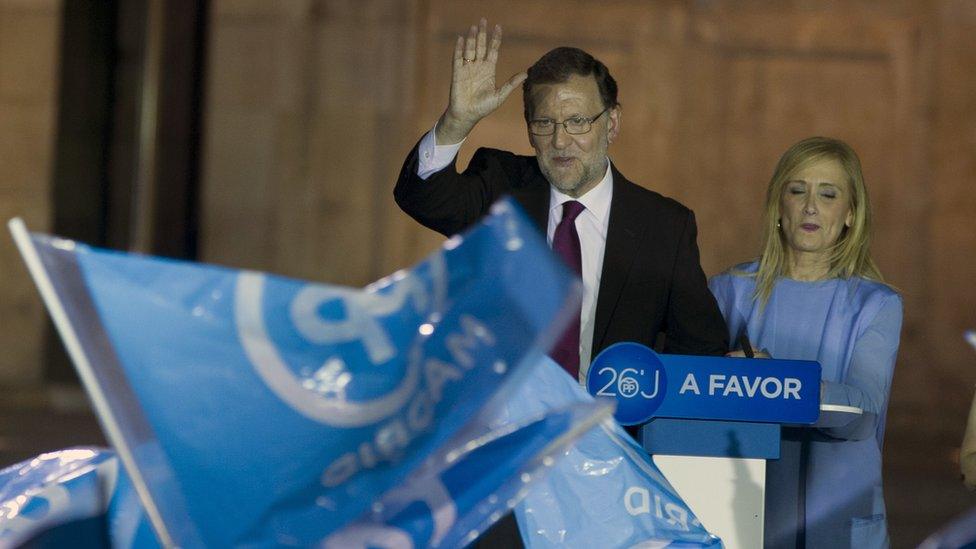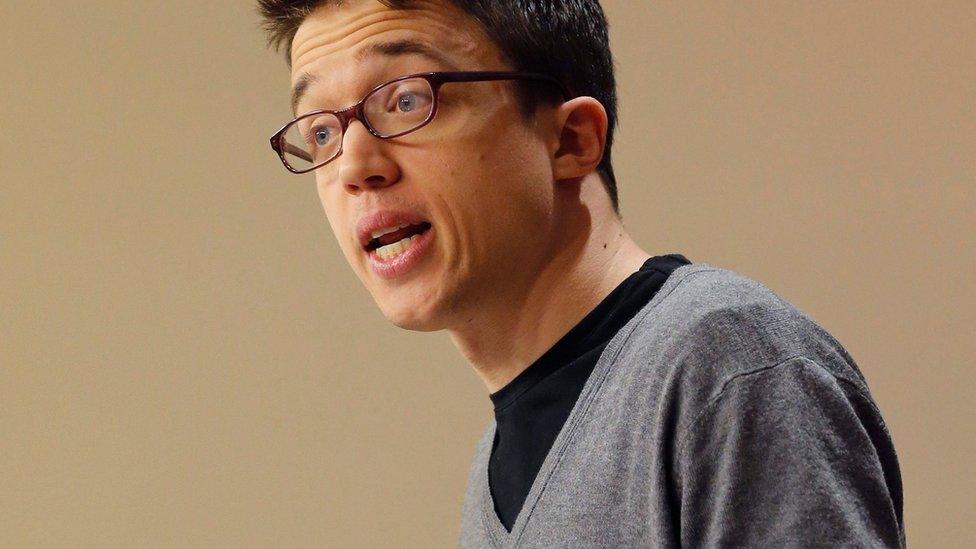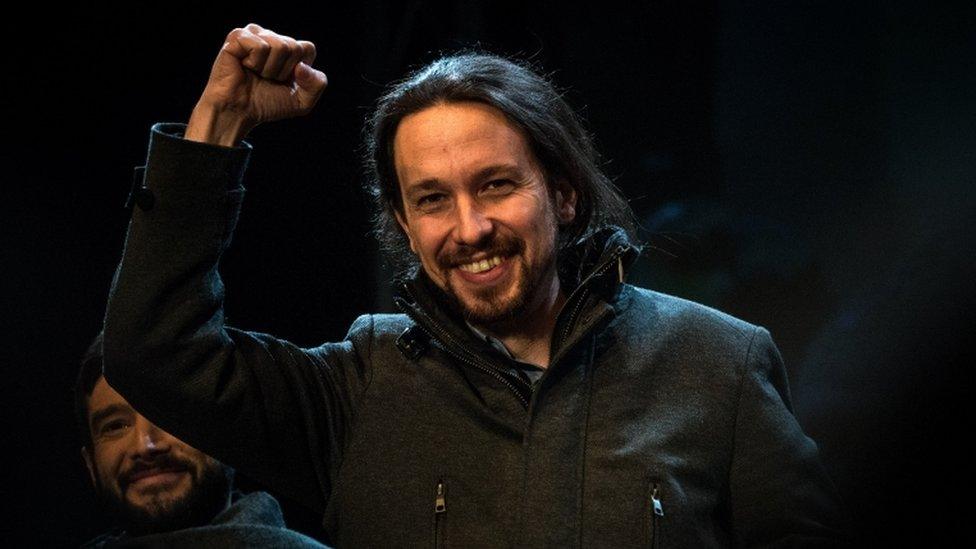Podemos gains as Spain launches new election campaign
- Published

Left-wing Podemos has an eyecatching Ikea-style manifesto
Campaigning has started 16 days ahead of a fresh general election in Spain, with left-wing Podemos edging ahead of the Socialists (PSOE) in opinion polls.
The main parties failed to break the political deadlock after December's inconclusive elections.
The conservative Popular Party (PP) is favourite to win, but only narrowly.
In December the PSOE was runner-up to the PP. There is speculation that the PSOE and Podemos could form a ruling coalition after the 26 June vote.
The December election was a watershed for Spain, because the PP and the PSOE had previously alternated in power since the restoration of democracy in the 1970s.

Podemos (meaning "We Can") is now campaigning as Unidos Podemos, allied with the United Left party under communist leader Alberto Garzon.
Podemos leader Pablo Iglesias has offered to form a left-wing coalition government with the PSOE after the election. "We need to agree with them [the PSOE] so that we can have a progressive government," he said.
Breaking new ground, Podemos has presented its manifesto as an Ikea-style catalogue, external, with party members posing in different parts of an ideal house.
Podemos and the other leftists argue that the PP, under acting Prime Minister Mariano Rajoy, is discredited because of austerity and the chronic unemployment that has plagued Spain since the 2008 financial crisis.
The PP, however, points to Spain's improved economic performance as proof that its policies worked.

Mariano Rajoy's PP is a few points ahead of Podemos in the latest polls
Judging by the current polls, Spain's result could mirror what happened in Greece, where the new left-wing Syriza party wooed voters away from the traditional Pasok socialists.
The fourth significant national party, according to the polls, is Ciudadanos (Citizens), a centre-right, pro-business party.
Ciudadanos hopes to occupy "a centre space in Spanish politics, with 3.5 million votes, which did not exist before in this country", its leader Albert Rivera said.
The party leaders will try to outdo each other in a high-profile TV debate on Monday, which could have an impact on millions of undecided voters.
Spain's Efe news agency reports that in this campaign the parties will hold fewer mass rallies - which are expensive - and focus instead on door-to-door leafleting and maximising their TV exposure.
They will also do less plastering of candidates' faces on public transport and in the streets, partly because of widespread voter discontent with politicians, Efe reports.
- Published21 August 2023

- Published24 February 2016

- Published21 December 2015
